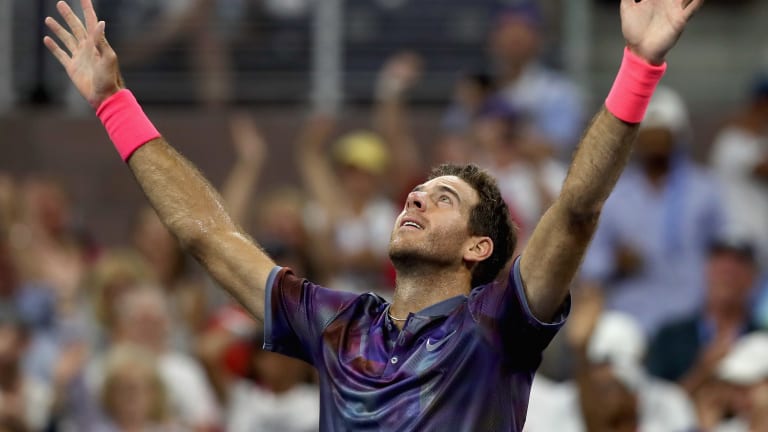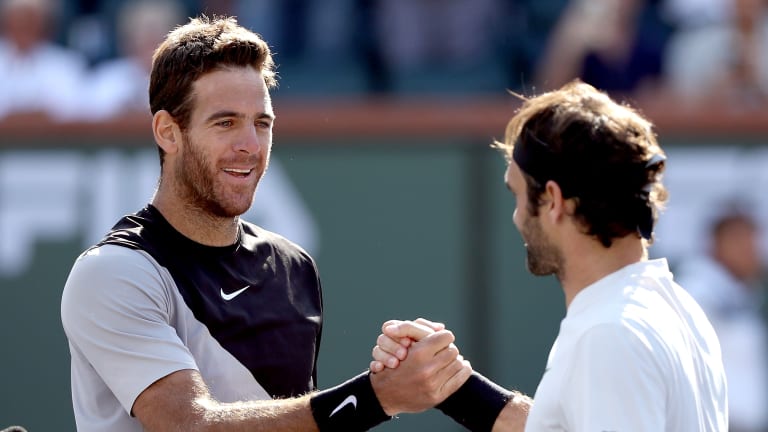Juan Martin del Potro could say, "Don’t cry for me, Argentina"—but no one would listen
By Feb 17, 2022International Tennis Hall Of Fame
Roger Federer, Juan Martin del Potro lead 2026 nominees for the International Tennis Hall of Fame
By Oct 01, 2025Social
PHOTOS: Joao Fonseca celebrates birthday with Juan Martin del Potro at Stars of the Open
By Aug 22, 2025Miami, USA
Novak Djokovic lights up Miami Open as Serena Williams, Juan Martin del Potro watch on
By Mar 26, 2025Social
'Everyone loves him': Juan Martin del Potro beats Novak Djokovic in emotional farewell exhibition
By Dec 02, 2024Social
Juan Martin del Potro opens up on injury anguish: 'A never-ending nightmare'
By Nov 27, 2024Lifestyle
Juan Martin del Potro set for "dream" clash with Novak Djokovic in Argentina
By Sep 13, 2024Social
From McEnroe to Alcaraz, Tennis legends headline Stars of the Open event on Arthur Ashe Stadium
By Aug 22, 2024Indian Wells, USA
Top 5 Indian Wells Finals, No. 2: Rafael Nadal d. Juan Martin del Potro, 2013
By Mar 17, 2024Facts & Stats
Jannik Sinner becomes first man since Lleyton Hewitt to win debut event as Grand Slam champ
By Feb 18, 2024Juan Martin del Potro could say, "Don’t cry for me, Argentina"—but no one would listen
Thoughts on the star-crossed superstar, who managed to accomplish so much in the face of endless injuries and historic competition.
Published Feb 17, 2022
Advertising
Advertising

Flushing Meadows came alive as del Potro mounted his comeback from two sets down against Thiem in a packed Grandstand.
© 2017 Getty Images
Advertising

Del Potro went 4-2 in finals against Federer, including their 2009 US Open and 2018 Indian Wells clashes.
© 2018 Getty Images